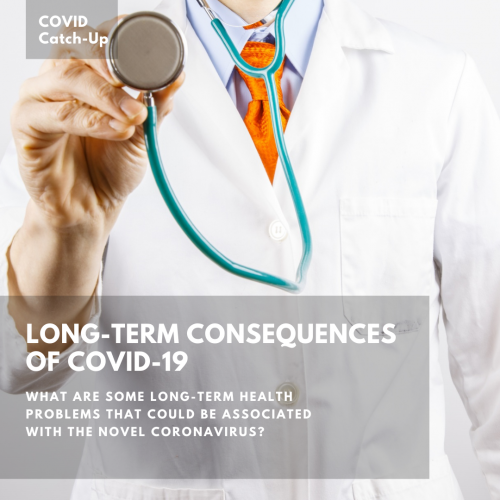Graphic by Maria Fernanda Pacheco.
Although less than 10% of COVID-19 cases directly result in death, there have been significant long-term health consequences observed in patients, even months after the initial viral infection.
For example, a German study of 100 patients who recovered from COVID-19 showed that 60% of the patients had persistent inflammation in heart muscle cells. It is also worth noting that 46% of 26 college athletes, none of whom required hospitalization nor reported major symptoms, displayed similar heart muscle cell inflammation, or myocarditis, a condition that weakens the heart and sometimes leads to heart failure.
Further research has shown long-term decrease in lung function, since the infection damages lung tissue. In a study of 55 patients, 71% continued to have lung abnormalities, such as scarring that impedes breathing, 3 months after hospital discharge.
There are also lasting neurological effects of COVID-19, such as headaches, seizures, and mood swings reported to occur 2-3 months after disease onset. Due to increased feelings of isolation and hopelessness, the overall psychological burden of the pandemic has negative implications for mental health.
Since this pandemic is relatively new, there are no data on long-term effects lasting beyond 12 months after initial diagnosis; further research and monitoring are necessary. It is likely that long-term health deterioration across various organ systems can result from COVID-19 infection, so the development of post-COVID-19 outpatient clinics has allowed for continued support of survivors.
Source: https://jamanetwork.com/journals/jama/fullarticle/2771581

